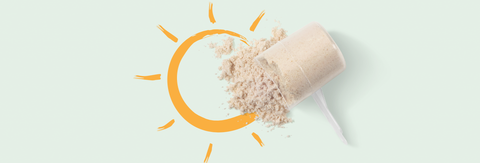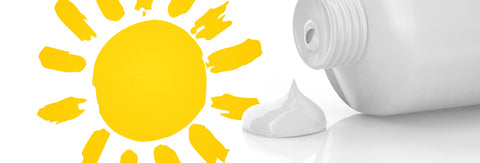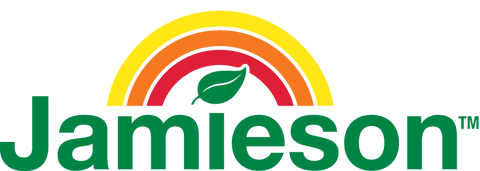The female body is home to billions of genetic material. Through of all its stages, it is constantly adapting to claim and retain the nutrients needed to navigate the physical world. As your body moves through different stages, its nutritional demands change, requiring different vitamins and minerals at every turn. And while many can be acquired through a wholesome diet, it can be hard to attain every nutrient needed through food alone. As your body changes so does its needs, but how are you meant to know supplements to take for what?! To help you take the guess work out of the supplement aisle, we have drilled down some of the most important nutrients women need, at every life stage.
Childhood and adolescence (ages 9-19)
Calcium
Recommended Daily Allowance: 1, 300 mg/day
Recommended Foods: Broccoli, kale, Chinese cabbage
Young bones are in a state of constant growth and the risk of breakage can be high. Calcium is necessary to equip children and teens with what they need to allow their bones (and teeth) to grow effectively stronger, and the healthier the bones, the less likely bone loss is to occur later in life. Additionally, certain dietary habits common in children, such as a high consumption of soda or diets low in leafy green veggies can lead to a calcium deficiency, making it even more important for children to get their daily calcium allowance.
Iron
Recommended Daily Allowance: 8 mg before menstruation, 15 mg afterwards
Recommended Foods: Beef, Turkey, Chicken, Halibut, Tuna, and Lentils
By function, iron is pivotal in the maintenance of healthy blood cells. This becomes increasingly critical for pubescent women in the midst of menstruation. With every period, iron is depleted from the system, weakening immunity, provoking lethargy and diminishing focuses overall. Women who lose more blood monthly have been shown to have a higher incidence of iron deficiency and anemia. More empirically, a Finnish study examining 236 young women with heavy periods, findings reported that 27% of them were anemic and 60% of them suffered from iron deficiency. The study also found iron supplements to be helpful in alleviating the symptoms of anemia.
20 somethings
Folate
Recommended Daily Allowance: 400 mcg
Recommended Foods: Spinach, kale, avocados
As women in their 20s settle into full-fledged adulthood, their nutritional needs change. To set the cadence for child bearing, many new vitamins enter the fold. Folate, responsible for creating new cells, is one of them. Known for its preventative properties, folate acts as a shield against neural tube damage. As neural tube damage begins developing well before conception, eating foods high in folate, or supplementing alternatively, is a great way to ensure you are priming and protecting yourself prior to pregnancy.
Calcium and Vitamin D
Recommended Daily Allowance
Recommended Foods: Cheese, eggs, salmon
Your 20s are a time of change and flux, so when it comes to your bones, there are no exceptions. At this stage, your bones are in constant repair, necessitating vitamin D for fast and certain absorption of calcium. Alternatively, a deficiency could lead to weak, brittle, easily broken bones. And although you may think it's too early to worry about your bones in your 20s, as you enter this new decade, you've reached peak bone mass. This means that your bones are now at risk of becoming weaker. Bone mass can't be increased after this stage, so it's crucial you take care of your bones now to help reduce the risk of osteoporosis.
Not just bone health, calcium, and vitamin D are also play a role in the menstrual cycle. Numerous studies show that lower levels of calcium and vitamin D are linked to uncomfortable pre-menstrual symptoms like headaches, breast pain, mood changes, bloating and so much more. Eating calcium and vitamin D rich foods, especially right before menses, or supplementation is an easy hack to beat PMS.
B vitamins
Recommended Foods: whole grains, eggs, legumes
B6 and B12 are the most well-known B vitamins but did you know there are actually eight B vitamins? This family of vitamins helps enzymes function optimally and help release energy from the foods we eat, especially carbs and fat. It also helps transport oxygen and nutrients around the body. No wonder these vitamins are linked to energy! To maintain energy stores, it’s important to consider taking B vitamins.
Taking a B Complex, like this one, is an easy way to ensure you are getting all the B’s you need!
During Pregnancy
Folate
Recommended Daily Allowance: 400 mcg prior, 600 mcg during, 400 mcg while breastfeeding
Recommended Foods: Romano Beans, Black Beans, Okra
Outside of eating a diet full of fresh fruits and vegetables, it's important for women with plans of pregnancy to consume an increased amount of folate. Responsible for the formation of baby's brain, spine and skull, the recommended amounts vary before, from and after child birth.
B Complex
Recommended Foods: Eggs, Milk, Cheese, Meat
B-complex vitamins are a pregnancy powerhouse. This family of nutrients has a strong hand in baby's development, and mom's comfort. Responsible for fortifying brain and eye health, these nutrients help minimize the risk of birth defects and relieve certain symptoms of pregnancy. Have you ever heard the old wives tale that baby's take your beauty? Technically, it's true! Pregnancy often depletes your B7 levels. In pregnancy vitamin B7, also known as biotin, can be credited for helping with hair loss, brittle nails and skin rashes. Beneath the surface, however, it is helping with baby's embryonic growth. During the first and third trimester, pregnant women often feel tired, run down and in need of energy.
Omega-3
Recommended Daily Allowance: 650 mg
Recommended Foods: Mackerel, Walnuts, Chia Seeds
Not only important for baby's heart and brain, omega 3s have been shown to have a positive effect on the development of baby's visual and cognitive functions. They've also been shown to reduce the risk of allergies in infants.
Vitamin D
Recommended Daily Allowance: 600 IU
Recommended Foods: Orange Juice, Tuna, Mushrooms
Why: Vitamin D helps fortify baby's immune system and build baby's bones and teeth.
Prenatals*
It can be a challenge to get all of the nutrients that you AND your baby need. A prenatal vitamin is a great solution for your body's nutritional demands through gestation. Formulated to support women in this life stage, a prenatal supplement provides you with a good proportion of all the core nutrients like vitamins A, B complex, folate, calcium, minerals and more which are needed to help fill the gaps and replenish you and baby.
**Everyone is different. Remember to always speak to your health care practitioner prior to taking any supplement during pregnancy to make sure its right for you.
40's to 50's
Calcium
Recommended Daily Allowance: 1,000 mg
Recommended Foods: Sardines, Almonds, Yogurt
For bone health, this stage is one of prevention. As women approach menopause, their estrogen levels drop, consequently harming bone building activity. What's more? Your body is creating less of the acid needed to absorb calcium, calling for an increased dosage of it, and vitamin D, overall.
Fibre
Recommended Daily Allowance: 25 g
Recommended Foods: Split peas, Lentils, Artichokes
By far one of the most underrated nutrients is fibre. Found in fruits, vegetables, whole grains, lentils, and legumes, this nutrient can do more than just regulate bowel movements. Fibre can also help lower cholesterol levels benefiting overall heart health. Fibre also help control blood sugar levels from spiking to high, preventing the dreaded sugar crash and all of it’s side effects. Keeping heart and blood sugar healthy should be top of mind at this stage because the risk of developing heart disease and type 2 diabetes is higher. If you’re struggling to get enough fibre, try Jamieson’s Digestive Booster!
Platinum lifestyle (65+)
Your body has different needs as it grows and evolves, and this is no exception at the post-natal stage. Bone health becomes a huge priority as the years gain on your body.
Calcium
Recommended Daily Allowance: 1,500 mg
Recommended Foods: Cheese, rhubarb, figs
Calcium requirements heighten after menopause due to lack of estrogen to prevent osteoporosis. This is also when women are at the highest risk of bone breakage and osteoporosis. As such, Osteoporosis Canada recommends upping your calcium dosage to 1,500 mg daily after the age of 50.
Magnesium
Recommended Daily Allowance: 320 mg
Recommended Foods: Fish, beans, tomatoes
With a reduced ability to absorb magnesium in the liver for post-menopausal women, supplements can be helpful to ensure you are meeting your levels. Magnesium helps with bone density and can aid in muscle strength. Studies also show that magnesium can have benefits for the heart, such as helping to regular blood pressure.
Sources
- Jaret, P. (2010, December). Nutrition for Women at Every Age. Retrieved from https://www.webmd.com/women/features/women-nutrition
Wolfenden, E. (2017, August). Nutritional Needs for 37-Year-Old Woman. Retrieved from https://www.livestrong.com/article/522290-nutritional-needs-for-37-year-old-woman/
Hicks, R. Dr. (2016, July). Essentials Vitamins for Women At Every Age. Retrieved from https://www.webmd.boots.com/women/guide/essential-vitamins-women - Statistics Canada. (2012, November). Iron sufficiency of Canadians. Retrieved from https://www.statcan.gc.ca/pub/82-003-x/2012004/article/11742-eng.htm
- Bruso, J. (2017, October 03). The Best Form of B-Complex Vitamin. Retrieved from https://www.livestrong.com/article/470421-the-best-form-of-vitamin-b-complex-vitamin/
- Ansel, K., & Doss, L. (2008, February 28). Healthy for Life: What to Eat in Your 20s, 30s, 40s, and Beyond. Retrieved from https://www.fitnessmagazine.com/recipes/healthy-eating/superfoods/what-to-eat-in-your-20s-30s-40s-and-beyond/
Anne, M. (2017, October 03). What Kinds of Vitamins Does a 20-Year-Old Female Need? Retrieved from https://www.livestrong.com/article/229895-what-kinds-of-vitamins-does-a-20-year-old-female-need/ - Capetta, A. (2018, January 26). Here's What You Need to Know About Multivitamins. Retrieved from https://www.womansday.com/health-fitness/wellness/g3065/best-multivitamin-for-women/
- Wilson, D. Rose. PhD, MSN, RN, IBCLC, AHN-BC, CHT (2017, March). The 14 Best Vitamins for Women. Retrieved from https://www.healthline.com/health/vitamins-for-women
Government of South Australia, Health. (2012, April). Healthy eating at different ages and stages. Retrieved from http://www.sahealth.sa.gov.au/wps/wcm/connect/public content/sa health internet/healthy living/healthy eating/healthy eating at different ages and stages of your life
Canada, H. (2013, April 12). Prenatal Nutrition Guidelines for Health Professionals - Folate Contributes to a Healthy Pregnancy. Retrieved from https://www.canada.ca/en/health-canada/services/food-nutrition/reports-publications/nutrition-healthy-eating/prenatal-nutrition-guidelines-health-professionals-folate-contributes-healthy-pregnancy-2009.html - National Health Service, UK. (2017, January). Vitamins, supplements and nutrition in pregnancy. Retrieved from https://www.nhs.uk/conditions/pregnancy-and-baby/vitamins-minerals-supplements-pregnant/
- American Pregnancy. (2018, April). Roles of Vitamin B in a Healthy Pregnancy. Retrieved from http://americanpregnancy.org/pregnancy-health/vitamin-b-pregnancy/
- Peuranpää, P., Heliövaara-Peippo, S., Fraser, I., Paavonen, J., & Hurskainen, R. (2014). Effects of anemia and iron deficiency on quality of life in women with heavy menstrual bleeding. Acta Obstetricia Et Gynecologica Scandinavica, 93(7), 654-660. doi:10.1111/aogs.12394




